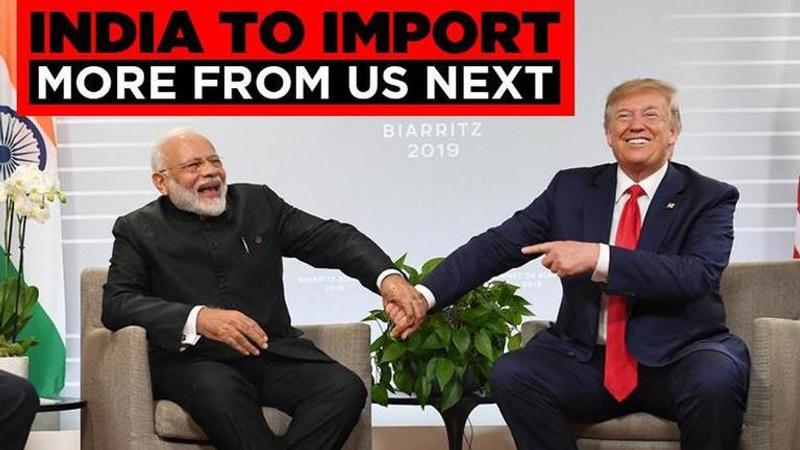Published 21:21 IST, August 26th 2019
India to import more from US, will reduce bilateral trade differences
PM Modi on Monday informed President Donald Trump that India plans to further step up imports, including oil, from the US and reduce the trade bilateral issues.

Advertisement
PM Modi on Monday informed President Donald Trump that India plans to further step up imports, including oil, from the US and that USD 4 billion worth of imports were already "in the pipeline", as the two countries sought to overcome their differences on tariffs and market access. The PM Modi Donald Trump meeting assumes significance in the wake of the strain that has popped up in the bilateral relationship on a host of trade and economic issues.
Meeting on the sidelines of the G7 Summit in the French city of Biarritz, where India was a special invitee, PM Modi and Trump agreed that preferably before the Prime Minister visits US next month, there will be an interaction between their trade ministers at which "the whole range of trade issues will be discussed," Foreign Secretary Vijay Gokhale said. Briefing on the 40-minute meeting between PM Modi and US President Donald Trump, he told reporters that Commerce Minister Piyush Goyal was supposed to go to Washington earlier but it did not materialise.
In Washington, a readout of the PM Modi Donald Trump meeting said, the two leaders discussed ways to broaden their strategic partnership and greatly increase trade between the United States and India.Though trade is an important part of the booming bilateral strategic partnership, a row over market access and tariffs has escalated in recent months, leading to fears of a protracted dispute. Trump has previously described India as the "tariff king." Before his meeting with PM Modi on the sidelines of the G20 Summit in Osaka, Japan, demanded the withdrawal of India's "very high" tariffs on US goods.
"The Prime Minister spoke of the importance of energy imports from the US, and he referred to the fact that 4 billion dollars worth of imports are already in the pipeline and that would be expected to be stepped up," Gokhale said.
He noted that PM Modi would be in the US in September to attend the UN General Assembly and would also travel to Houston, America's energy capital. The prime minister is scheduled to address the Indian community in Houston on September 22. In Houston, the prime minister is expected to have a round table with the top CEOs of the energy companies in the US, he said. He said the objective there is two fold, one to see how India can import more energy (oil) from the US and second is how the country can invest in the energy sector in the US.
Gokhale said President Trump spoke very warmly of the fact that India has become a major importer of energy. He also indicated that he was willing to send top administration officials to Houston in an effort to ensure that the bilateral energy relationship made progress.India's exports to the US in 2017-18 stood at USD 47.9 billion, while imports were at USD 26.7 billion. The trade balance is in favour of India. The Foreign Secretary described the bilateral meeting between PM Modi and Donald Trump as a very positive one.
"This is the third either meeting or conversation that the two leaders have had in about 100 days of office that PM Modi has been in his second term," he noted.
In June, President Trump terminated India's designation as a beneficiary developing nation under the key GSP trade programme after determining that New Delhi has not assured the US that it will provide "equitable and reasonable access" to its markets. The Generalized System of Preference (GSP) is the largest and oldest US trade preference programme and is designed to promote economic development by allowing duty-free entry for thousands of products from designated beneficiary countries.The Trump administration wants India to lower the trade barriers and embrace "fair and reciprocal" trade. Trump has also criticised India's high import tariff on the iconic Harley- Davidson motorcycles as "unacceptable".
Many US companies like Google, Mastercard, Visa and Amazon have raised concerns over the issue of data localisation and its impact on their operational cost. In April last year, the Reserve Bank of India issued a directive on 'Storage of Payment System Data'. It had advised all system providers to ensure that within a period of six months, the entire data relating to payment systems operated by them is stored in a system only in India, for effective monitoring. India has also dragged the US to the World Trade Organisation's dispute settlement mechanism over the imposition of import duties on steel and aluminium.
21:14 IST, August 26th 2019




